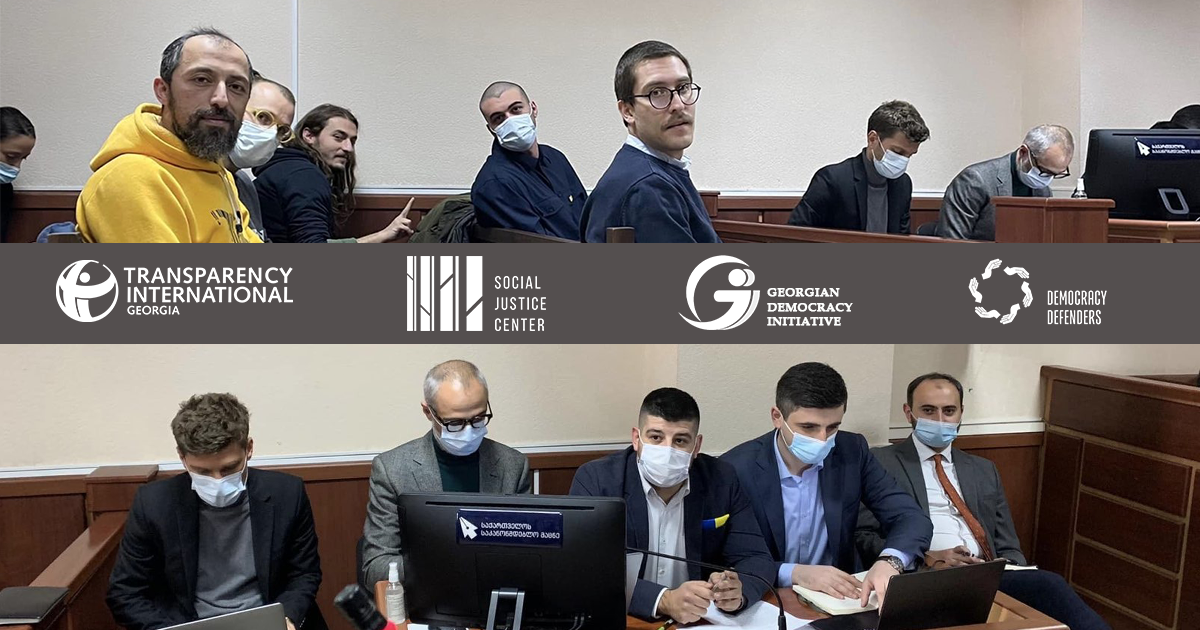საერთო ცხელი ხაზი +995 577 07 05 63


Tbilisi City Court imposed a fine worth GEL 34 300 in total on 16 individuals arrested at a rally in solidarity with Ukraine. It includes a GEL 15 800 fine imposed by judge Manuchar Tsatsua on six activists from the Shame Movement on 6 April 2022. The unlawful administrative arrest and unsubstantiated court decision have resulted in gross violation of the rights of activists and restriction of the right to freedom of peaceful assembly.
Lawyers from the undersigned NGOs and civic movements defended the activists of the Shame Movement at the trial. A number of violations have been identified in the case, including:
Despite the above-listed circumstances, the court ignored the presumption of innocence as well as the burden of proof and subsequently declared the activists guilty. The decision is especially problematic because these offences imply either imprisonment or a fine, the amount of which is several times higher than the average monthly salary in Georgia. Furthermore, the Venice Commission and OSCE/ODIHR believe that a disproportionate sanction, including a large fine, may violate the right to freedom of assembly and have a chilling effect that may discourage people from participating in assemblies and manifestations and expressing their protest in future.[1] Moreover, the European Court of Human Rights has repeatedly underlined that the use of disproportionately harsh sanctions may have a chilling effect.[2]
It is worth noting that the current Administrative Offences Code cannot ensure adequate protection of the right to a fair trial and citizens often become victims of unreasoned and selective justice. Civil society organizations and human rights defenders have been long advocating a systemic reform of the Code; however, instead of improving the standards and procedural guarantees, administrative fines for disorderly conduct and disobedience to police have been increased several times in the past few years.
The continuation of such vicious practices by law enforcement and court authorities indicates the government’s intention to restrict the freedom of expression by applying unlawful detentions and imposing harsh fines, to deliver a serious financial blow to activists and discourage them from expressing their protest.
[1] European Commission for Democracy through Law (Venice Commission) and Office for Democratic Institutions and Human Rights (OSCE/ODIHR), Guidelines on Freedom of Peaceful Assembly (3rd Edition), 8 July 2019, para. 36 https://www.venice.coe.int/webforms/documents/?pdf=CDL-AD(2019)017-e [last accessed on 07.04.2022]
[2] ECtHR, Guide on Article 11 of the European Convention on Human Rights, Freedom of Assembly and Association (1st edition) 31 August 2019, paras. 74-78 https://www.echr.coe.int/Documents/Guide_Art_11_ENG.pdf [last accessed on 07.04.2022]
The website accessibility instruction